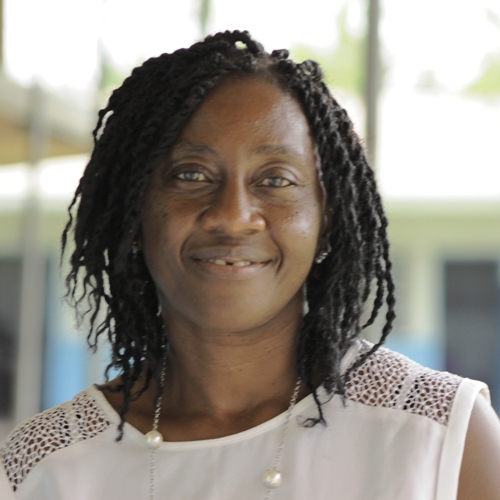Course
Some Text goes here
Some Text goes here
Dean
ACADEMIC QUALIFICATIONS PhD. Computer Science (2010-2015), University of Windsor, Windsor ON CANADA Dissertation: Modeling the Evolution of Artifact Capabilities in Multi-Agent Based Simulations MSc. Computer Science (1991-1993), Wayne State University,

PhD. Computer Science (2010-2015), University of Windsor, Windsor ON CANADA Dissertation: Modeling the Evolution of Artifact Capabilities in Multi-Agent Based Simulations
MSc. Computer Science (1991-1993), Wayne State University, Detroit, MI USA Thesis: Management of Rules for Semantic Query Optimization in Equi-Depth Multidimensional Histograms
Premier Degre, Certificat Pratique de Langue Francaise, Universite de Lille III, Lille FRANCE
B.A. Computer Science (1986-1990), University of Texas, Austin, TX USA
Vice President for Student/Alumni Career Services and Development, (2016-Present), Catholic University Institute of Buea, Buea CAMEROON
Dean/Faculty, School of Information Technology, (2015-Present), Catholic University Institute of Buea, Buea CAMEROON
Researcher/Programmer (2010-2015), Intelligent Systems Lab, University of Windsor, Windsor ON CANADA
Sessional Instructor/Lab Instructor (2010-2013), Department of Computer Science, University of Windsor, Windsor ON CANADA
Project Director/Senior Software Engineer (1999-2002), Analysts International Corporation (AIC), Auburn Hills, MI USA
Client/Server Software Developer (1993-1999), Cerner Corporation, Southfield, MI USA
F. Mokom and Z. Kobti. (2015). "Exploiting objects as artifacts in multi-agent based social simulations". International Conference on Autonomous Agents and Multi-Agent Systems (AAMAS), pages 1869-1870
F. Mokom and Z. Kobti. (2014). "Improving artifact selection via agent migration in multi-population cultural algorithms". IEEE Symposium on Swarm Intelligence (SIS), pages 1-8
F. Mokom and Z. Kobti. (2013). "Interventions via social influence for emergent suboptimal restraint use". Advances in Distributed Computing and Artificial Intelligence Journal (ADCAIJ), Vol. 1(5), pages 25-35.
F. Mokom and Z. Kobti. (2013). "Suboptimal restraint use as an emergent norm via social influence". Distributed Computing and Artificial Intelligence (DCAI), pages 545-552
F. Mokom and Z. Kobti. (2013). "Effects of social inhibition on selection of artifact capabilities". AAAI Florida Artificial Intelligence Research Society Conference (FLAIRS), pages 100-105
F. Mokom and Z. Kobti. (2012). "Learning artifact capabilities via a hybrid ontology". AAAI Florida Artificial Intelligence Research Society (FLAIRS), pages 367-370
F. Mokom and Z. Kobti. (2011). "A cultural evolutionary model for artifact capabilities". European Conference on Artificial Life (ECAL), pages 542-549.
F. Mokom and Z. Kobti. (2011). "Evolution of Artifact Capabilities". IEEE Congress on Evolutionary Computation (CEC), pages 476-483
External Reviewer: Advanced Cognitive Technologies and Applications (COGNITIVE) 2016, IEEE Symposium Series on Computational Intelligence (SSCI), 2014; IEEE Congress on Evolutionary Computation (CEC), 2012; Canadian Conference on Artificial Intelligence (AI) 2011
The application of computational intelligence techniques specifically evolutionary computation methods towards optimization problems, complex systems and modeling artificial societies.
Complex agent-based model for the Village Ecodynamics Project, funded by the U.S. National Science Foundation.
Integrated simulation and evolutionary models for studying social and cultural effects on auto restraint use funded by Auto21, Canada's largest research network for automotive research.
Decision support system for the Traffic and Road Injury Prevention project funded by the Canadian Institute of Health Research.
© COPYRIGHTS 2017-CUIB. All Rights Reserved.